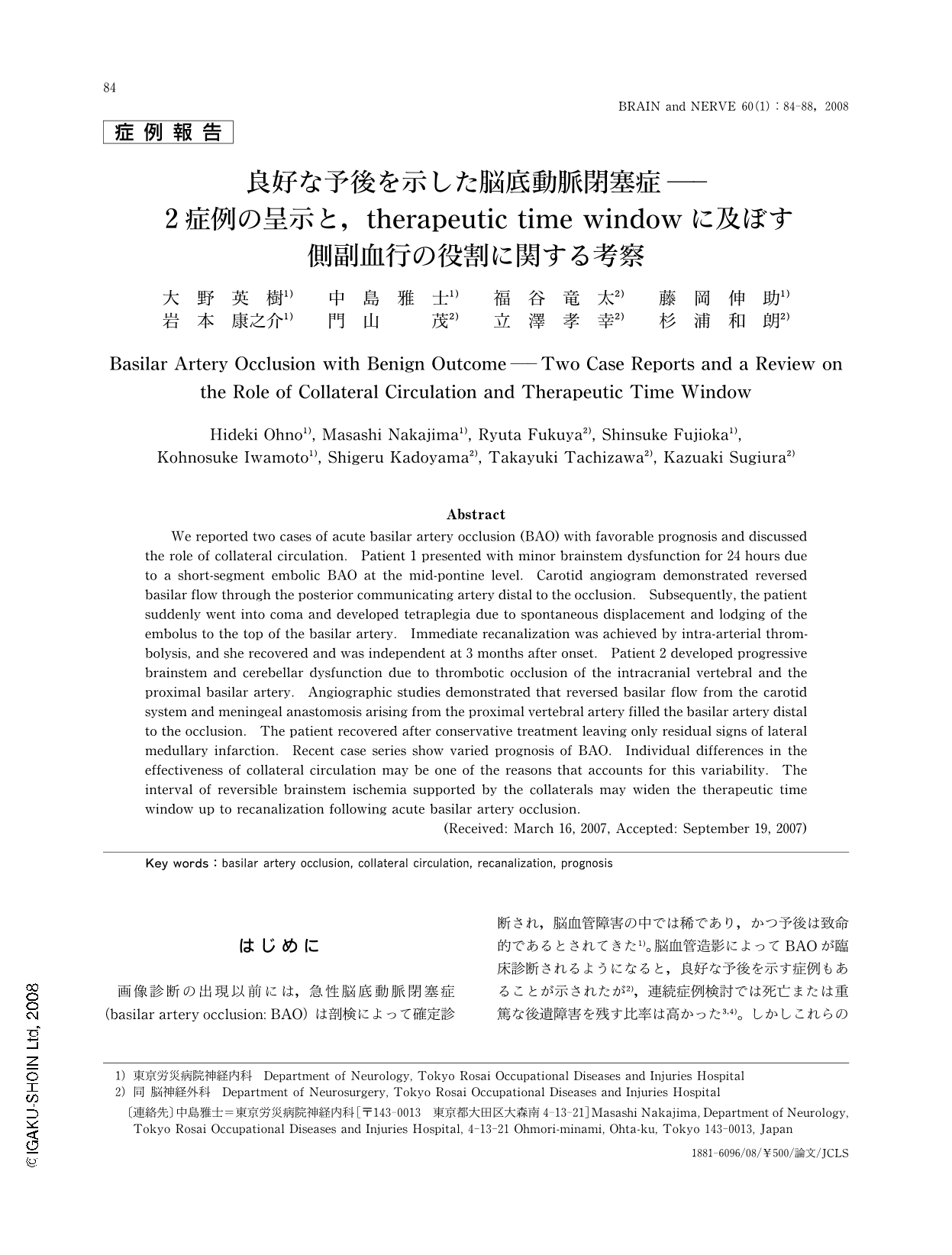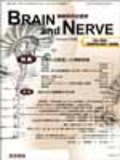Japanese
English
- 有料閲覧
- Abstract 文献概要
- 1ページ目 Look Inside
- 参考文献 Reference
はじめに
画像診断の出現以前には,急性脳底動脈閉塞症(basilar artery occlusion: BAO)は剖検によって確定診断され,脳血管障害の中では稀であり,かつ予後は致命的であるとされてきた1)。脳血管造影によってBAOが臨床診断されるようになると,良好な予後を示す症例もあることが示されたが2),連続症例検討では死亡または重篤な後遺障害を残す比率は高かった3,4)。しかしこれらの報告では,比較的軽症例に対しては侵襲的な脳血管造影が行われていない可能性,すなわち症例選択の偏りを否定できない。Magnetic resonance angiography(MRA)または経頭蓋ドップラー(transcranial Doppler: TCD)による非侵襲的な脳底動脈の描出が可能になった近年の連続症例検討によって,BAOの予後は多様であり,良好な予後を示すものが少なくないことが明らかになってきた5,6)。椎骨脳底動脈系梗塞症例登録に基づく前方視的研究では,9年間に登録された407症例中にBAOは32症例を占め,このうち予後不良例は40%に過ぎなかった7)。われわれはここに2例を追加報告し,良好な予後をもたらした要因と,再開通を目的とした治療のtherapeutic time windowについて,文献的考察を加えて検討する。
Abstract
We reported two cases of acute basilar artery occlusion (BAO) with favorable prognosis and discussed the role of collateral circulation. Patient 1 presented with minor brainstem dysfunction for 24 hours due to a short-segment embolic BAO at the mid-pontine level. Carotid angiogram demonstrated reversed basilar flow through the posterior communicating artery distal to the occlusion. Subsequently, the patient suddenly went into coma and developed tetraplegia due to spontaneous displacement and lodging of the embolus to the top of the basilar artery. Immediate recanalization was achieved by intra-arterial thrombolysis, and she recovered and was independent at 3 months after onset. Patient 2 developed progressive brainstem and cerebellar dysfunction due to thrombotic occlusion of the intracranial vertebral and the proximal basilar artery. Angiographic studies demonstrated that reversed basilar flow from the carotid system and meningeal anastomosis arising from the proximal vertebral artery filled the basilar artery distal to the occlusion. The patient recovered after conservative treatment leaving only residual signs of lateral medullary infarction. Recent case series show varied prognosis of BAO. Individual differences in the effectiveness of collateral circulation may be one of the reasons that accounts for this variability. The interval of reversible brainstem ischemia supported by the collaterals may widen the therapeutic time window up to recanalization following acute basilar artery occlusion.
(Received: March 16, 2007, Accepted: September 19, 2007)

Copyright © 2008, Igaku-Shoin Ltd. All rights reserved.


